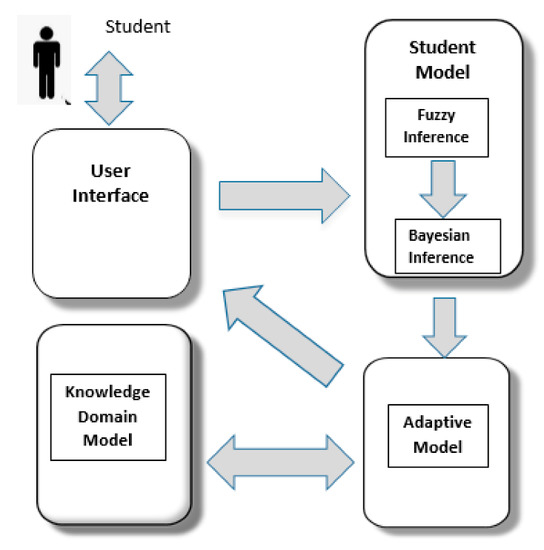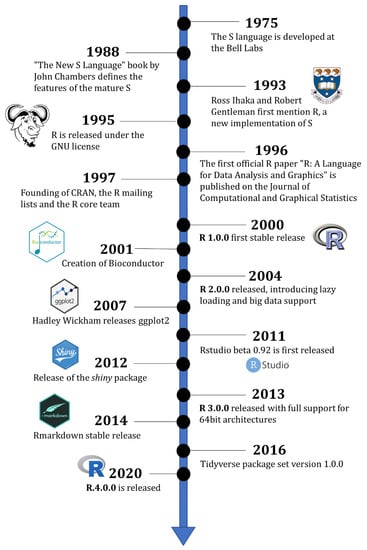How Bioinformatics Tutor can Save You Time, Stress, and Money.
Little Known Questions About Bioinformatics Tutor.
Table of ContentsNot known Facts About Bioinformatics TutorSome Of Bioinformatics TutorThe 3-Minute Rule for Bioinformatics TutorNot known Factual Statements About Bioinformatics Tutor 9 Simple Techniques For Bioinformatics Tutor
Of the overall individuals associated with the training, 80% were students from public college organizations, while the remaining 20% came from personal institutions. To get approved for a certification of participation, students were called for to attend a minimum of 90% of the overall training hours. As a result of this demand, a remarkable 95% of the individuals successfully obtained their certifications, having not only satisfied the minimum presence standards however additionally finished all appointed activities throughout the training.
During the elevation of the COVID-19 pandemic, especially between June and August 2020, the task team was charged with organizing specialized training in bioinformatics. This training was particularly aimed at trainees from the study team Nucleus for Research in Applied Computer at the Federal College of Pará (UFRA) The adaptation to remote understanding systems because of the pandemic produced a possibility to explore new training methods and digital devices that enhanced both reach and effectiveness.
To respond to the expanding need in the computer and life sciences areas, an innovative program was introduced in 2020 entitled Intro to Artificial intelligence. This program was created to offer an obtainable yet comprehensive overview of Expert system strategies, specifically as applied in bioinformatics. The program was executed over three months, from October to December 2020, and was supplied entirely online via the Google Meet system. This online style enabled participation from students throughout Brazil, several of whom may not have had the chance to attend in-person sessions.
Getting My Bioinformatics Tutor To Work
A notable feature of this program was its emphasis on hands-on knowing. About 50% of the total training hours were dedicated to functional tasks where students built smart versions and applications in a variety of scientific domains, including genes, molecular biology, and ecological information analysis. Commonly made use of frameworks and devices such as Spyder, Google Colab, Jupyter Notebooks, and Orange were integrated right into the coursework. These systems allowed trainees to involve in real-time information manipulation, design training, and formula experimentation.
Sixty of them were connected with various higher education establishments in the state of Pará, while the staying twenty came from establishments found in five other Brazilian states. By introducing Artificial Knowledge in a pertinent and useful context, the campaign offered to bridge the space in between concept and real-world application, giving trainees with a strong foundation for future research study or work in the area.
The training campaign created part of a wider scholastic outreach initiative recognized as the Bioinformatics when traveling job. This task has, for many years, introduced lots of trainees to the globe of bioinformatics and computational biology. The events held under this umbrella effort have happened throughout multiple areas and years, as summarized in Table 1 (Listing of occasions, areas, years, and overall varieties of trainees and trainers)
Among the most remarkable outcomes of the Bioinformatics when driving initiative has been its contribution to the development of decentralized research study teams. Several learn the facts here now of these groups, initially united by their involvement in training events, have actually since gone on to generate independent clinical research study in collaboration browse around this web-site with neighborhood scholastic organizations. The training not only promoted clinical thinking within the context of bioinformatics but likewise stimulated collective relationships that prolonged past the training environment. These collaborations have resulted in boosted neighborhood scientific performance and contributed meaningfully to the advancement of the more comprehensive bioinformatics neighborhood in Brazil.
Top Guidelines Of Bioinformatics Tutor
The very same team, excluding IH and RR, additionally acted as tutors for the functional training modules. Funding for the task was given with the grant 88887.200562/ 2018-00 from CAPES.
The Federal College of Pará's Workplace of Research (PROPESP/UFPA) likewise supplied economic support, especially for the production of the last manuscript. The authors state no business or monetary conflicts of interest that can have influenced the research. Moreover, all interpretations and opinions shared in this write-up are exclusively those of the writers and do not always mirror those of their respective establishments, the author, editors, or reviewers associated with the magazine procedure.

Bioinformatics Tutor Fundamentals Explained
From a pedagogical viewpoint, the teaching strategy used in the training was purposefully interactive. Classes were carried out in a manner that encouraged pupil participation and conversation, surpassing rote memorization to discover how concepts are created, applied in life, and tested in academic setups. The instructional approach concentrated on nurturing both solid and having a hard time pupils, providing personalized assistance, and structure confidence through continual mentorship and patience.

Each team, including about 36 individuals, was supported by 3 mentors-- a lot of whom were postdoctoral researchers with customized experience. These coaches not only assisted create the group tasks however additionally facilitated their implementation, making sure that each research concern was both relevant and suitably challenging. The goal was to supply a naturally sensible context that individuals might discover through flexible objectives and access to curated datasets.
For added insights into the technique and outcomes of this project-based understanding technique, visitors are routed to S1 Text, that includes comprehensive summaries of the pedagogical structure, assessment approaches, and project motifs made use of in the training sessions.
The 8-Minute Rule for Bioinformatics Tutor
Of the total amount participants included in the training, 80% were students from public higher education organizations, while the continuing to be 20% came from top article private organizations. To certify for a certificate of engagement, students were required to attend at least 90% of the overall training hours. Notably, beyond the students that enrolled in the training sessions, seven experienced instructors participated in delivering the courses, while three dedicated research professors worked with the general training procedure. Approximately 50% of the overall training hours were committed to sensible tasks where pupils constructed smart designs and applications in a variety of scientific domains, consisting of genes, molecular biology, and environmental data analysis. The training not just cultivated scientific reasoning within the context of bioinformatics yet likewise triggered joint partnerships that prolonged beyond the training environment.